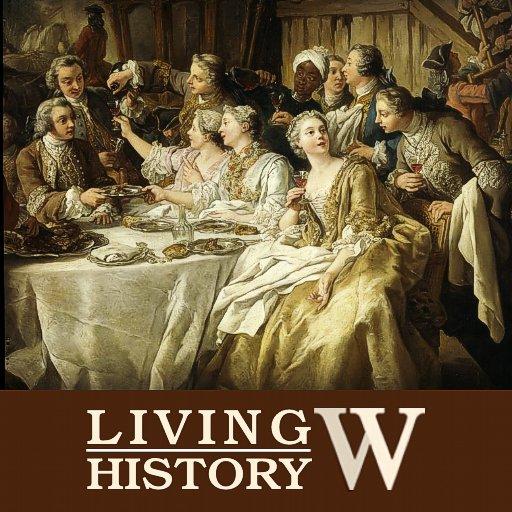very nice suggestion, Myron. The thing comes across most clearly from your quotes is the idea that these who people who loved language: they played with it, they had fun it, they treated speaking and writing as an art. For example you quote the lines:
"Kisses are like confidences: they attract each other, they accelerate each other, they excite each other. In fact, I had barely received the first kiss when a second followed upon its heels, and then another: their pace quickened, interrupting and then replacing the conversation.Soon they scarcely left us time to sigh. "
That is such a wonderful way of saying "We started kissing and couldn't stop. OMG, we kissed a lot."
It seems to me that what you are saying Myron, is that in addition to trying to recreate some of the details and structure of 18th century life, we should try to pay as much attention to what we say and how we say it. if we are going to emulate the best aspects of 18th century life, we should have fun with our language, to play with it, and paint pictures with it.
Another example I really enjoy, even though it is a 19th century translation, is the memoirs of the Marquise de Montespan (though a little earlier being memoirs of the time of the court of Louis XIV, they are still great fun to read). In this passage, Madame de Montepsan describes the circumstances around her arranged marriage in a way that is both utterly charming and hilarious:
"My mother occasionally took me out into society after the marriage of my sister....and I was not slow to perceive that there was in my person something slightly superior to the average intelligence,--certain qualities of distinction which drew upon me the attention and the sympathy of men of taste. Had any liberty been granted to it, my heart would have made a choice worthy alike of my family and of myself. They were eager to impose the Marquis de Montespan upon me as a husband; and albeit he was far from possessing those mental perfections and that cultured charm which alone make an indefinite period of companionship endurable, I was not slow to reconcile myself to a temperament which, fortunately, was very variable, and which thus served to console me on the morrow for what had troubled me to-day. Hardly had my marriage been arranged and celebrated than a score of the most brilliant suitors expressed, in prose and in verse, their regret at having lost beyond recall Mademoiselle de Tonnai-Charente. Such elegiac effusions seemed to me unspeakably ridiculous; they should have explained matters earlier, while the lists were still open. For persons of this sort I conceived aversion, who were actually so clumsy as to dare to tell me that they had forgotten to ask my hand in marriage!"
This is substantially much more fun to read than simply "I was married off to an unpredictable but acceptable dolt. You other dolts who were disappointed that I married this dolt should have said something sooner."
Her memoirs in English may be found here:
http://onlinebooks.library.upenn.edu/webbin/gutbook/lookup?num=3847




